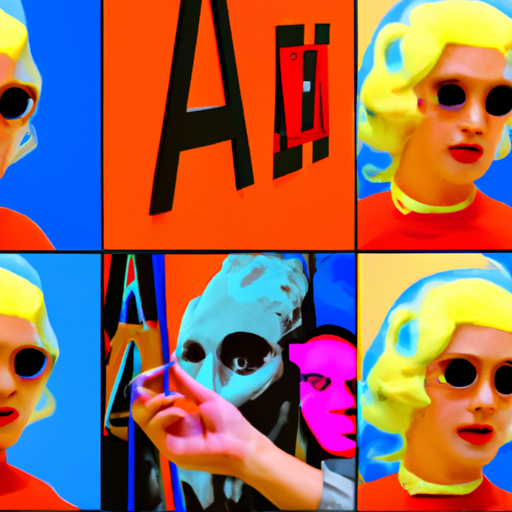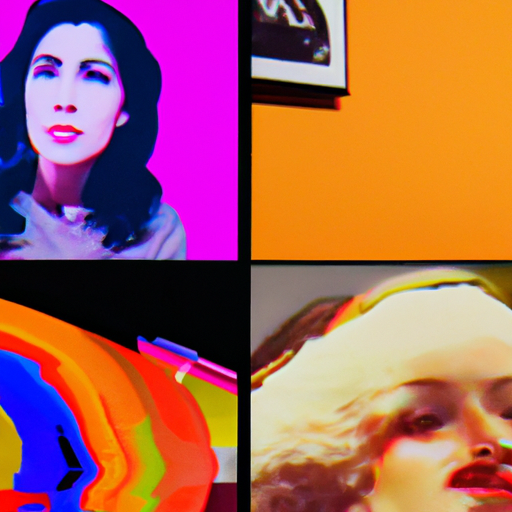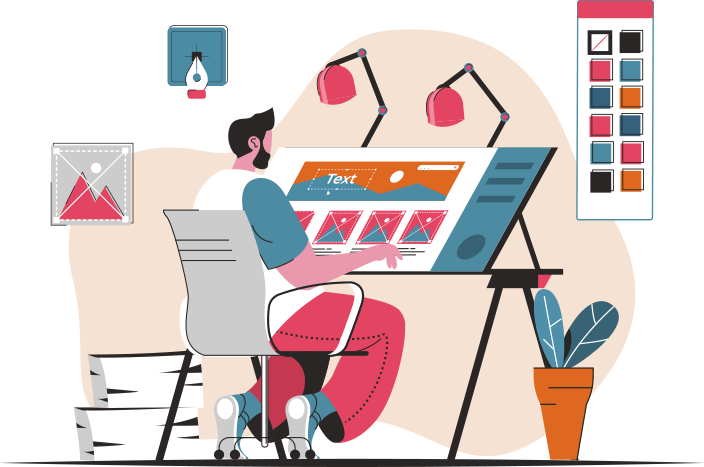
-
Table of Contents
Collage Creativity: Merging Artistic Mediums in Design

Artistic expression has always been a reflection of the human experience, and throughout history, artists have pushed the boundaries of creativity by merging different mediums. One such technique that has gained popularity in recent years is collage. Collage allows artists to combine various materials, textures, and images to create unique and visually captivating designs. In this article, we will explore the concept of collage creativity and its impact on the world of design.
The Evolution of Collage
Collage as an art form has a rich history that dates back to the early 20th century. It emerged as a response to the changing world and the desire to break away from traditional artistic conventions. Artists like Pablo Picasso and Georges Braque were among the pioneers of collage, incorporating elements of newspaper clippings, photographs, and found objects into their paintings.
Over time, collage has evolved and expanded beyond the realm of fine art. It has found its way into various design disciplines, including graphic design, fashion, and interior design. The versatility of collage allows designers to experiment with different materials and techniques, resulting in visually stunning and conceptually rich creations.
The Power of Mixing Mediums
One of the key advantages of collage is its ability to combine different mediums to create a cohesive and harmonious design. By merging materials such as paper, fabric, photographs, and digital elements, designers can add depth, texture, and visual interest to their work.
For example, in graphic design, collage can be used to create eye-catching posters or album covers. By layering various images, textures, and typography, designers can convey complex messages and evoke emotions in the viewer. This multidimensional approach to design allows for a more immersive and engaging experience.
In fashion design, collage has become a popular technique for creating unique garments and accessories. Designers like Alexander McQueen and John Galliano have incorporated collage elements into their collections, combining different fabrics, prints, and textures to create visually striking and avant-garde designs.
Case Studies: Collage in Design
To further illustrate the impact of collage in design, let’s explore a few case studies of successful projects that have embraced this creative technique.
1. The New York Times Magazine Covers
The New York Times Magazine is known for its innovative and visually stunning covers. In 2019, the magazine collaborated with artist and designer Peter Mendelsund to create a series of collage-inspired covers. Mendelsund combined photographs, illustrations, and typography to create dynamic and thought-provoking compositions that captured the essence of the featured articles.
By using collage, Mendelsund was able to convey complex ideas and emotions in a visually striking and accessible way. The covers became instant conversation starters and received widespread acclaim for their creativity and originality.
2. The House of Hackney Wallpaper Collection
The House of Hackney, a British interior design brand, is known for its bold and eclectic designs. In their wallpaper collection, they have embraced collage as a way to create unique and visually captivating patterns.
By combining vintage illustrations, botanical prints, and geometric shapes, House of Hackney has created a collection that is both nostalgic and contemporary. The collaged elements add depth and texture to the designs, making them stand out in any interior space.
The Benefits of Collage in Design
Collage offers several benefits to designers, making it a valuable technique to incorporate into their creative process. Here are some of the key advantages:
- Unlimited Creativity: Collage allows designers to break free from traditional constraints and explore new possibilities. The combination of different mediums opens up a world of creative opportunities.
- Visual Impact: The layering and juxtaposition of various elements in collage create visually striking compositions that capture the viewer’s attention.
- Storytelling: Collage can be used to convey complex narratives and emotions. By combining different images and textures, designers can create visual stories that resonate with the audience.
- Flexibility: Collage can be applied to various design disciplines, from graphic design to fashion and interior design. Its versatility allows designers to experiment and explore different mediums and techniques.
Conclusion
Collage creativity has become a powerful tool in the world of design. By merging different artistic mediums, designers can create visually captivating and conceptually rich compositions that engage and inspire the audience. Whether it’s in graphic design, fashion, or interior design, collage offers unlimited creative possibilities and allows designers to push the boundaries of their craft. As the world of design continues to evolve, collage will undoubtedly remain a valuable technique for artists and designers alike.
